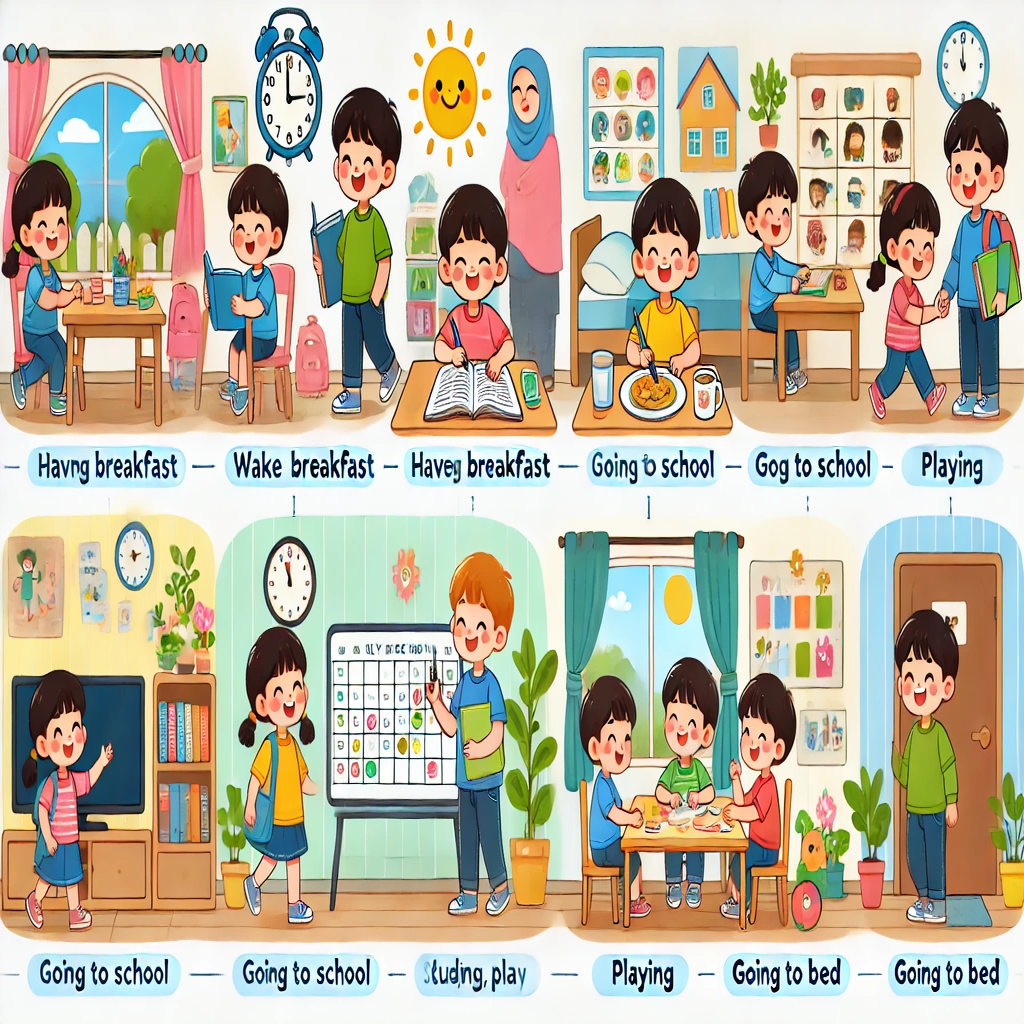
introduction
Daily routine is a specific arrangement of daily activities and tasks that a child performs regularly. Daily routine is one of the essential factors in developing a child's personality and life skills. Daily routine helps children feel safe and stable, and enhances their sense of responsibility and discipline. In this article, we will discuss the benefits of a child's daily routine and how to implement it effectively.
Benefits of daily routine for children
- Feeling safe and secure:
- A daily routine provides a child with a sense of security and stability, as they know what to expect during the day. This sense helps children feel psychologically comfortable and reduces stress and anxiety.
- Developing self-discipline:
- Daily routines help children develop self-discipline skills. When a child gets used to doing daily activities at a specific time, he learns to organize his time and stick to the tasks required of him.
- Improve sleep:
- A daily routine helps improve a child’s sleep pattern. For example, having a set bedtime and wake-up time helps the body regulate its biological clock, leading to a restful and restful sleep.
- Enhance learning skills:
- Daily routines help improve a child’s ability to learn and concentrate. When a child knows when to study and when to play, they are more prepared to concentrate during study time, which enhances the effectiveness of the educational process.
- Developing social skills:
- Daily routines can include social activities such as playing with friends or family time. These activities enhance a child’s social skills and help him or her form positive relationships.
- Promote independence:
- When a child has a daily routine, he learns how to do tasks on his own, which enhances his sense of independence and self-confidence.
How to implement a daily routine effectively
- Set a regular schedule:
- Set specific times for each daily activity such as waking up, eating, studying, playing, and sleeping. Visual schedules with drawings or pictures can be used to illustrate activities for young children.
- Flexibility and adaptability:
- While it is important to stick to a routine, there must be room for flexibility and adaptation to unexpected circumstances. The routine should be adjustable to suit the needs of the child and the family.
- Participation and cooperation:
- Involving the child in setting the daily routine helps him feel responsible and increases his commitment to it. Different activities can be discussed with the child and his opinions and suggestions can be listened to.
- Motivation and reward:
- Offering simple rewards and encouragement when a child sticks to a routine helps reinforce positive behavior. Stickers or fun activities can be used as rewards for sticking to a routine.
- Good role model:
- Parents should be good role models for their children in adhering to a daily routine. When a child sees that his parents are committed to their daily routine, he learns that this habit is important and prefers to stick to it.
conclusion
Daily routines are an effective tool for developing a child’s personality and enhancing their life skills. By providing a structured and stable environment, children can grow and thrive in a healthy and balanced way. By balancing different daily activities and encouraging the child to stick to them, parents can help their children build a bright and successful future.


